The Distance Between Us
01 May - 5 June 2021
Akinci Gallery
Amsterdam
Amsterdam
Distance: dis-stare “stand apart”; destance“discord, quarrel”
[...]The title of this show is “The Distance Between Us”, and in this manner the pronoun ‘us’ invites me and you, the viewers, in, while at the same time it excludes us from a more personal and insular ‘us’––the pronoun shared by lovers and friends––in which something is concealed from outsiders, kept outside of the paintings. In Mangroves a man and a woman walk away in different frames, mirroring each other. Separated, but in what looks like the same location. With their backs to us, they are faceless, unidentifiable others. The viewpoint given to us is the first person, as though we were intruding on what appears to be a private moment. There is a context that remains mysterious, a secrecy that is essential to any intimacy.
Swinney has acknowledged the influence of Lacan’s mirror-stage on her work, the point at which the infant (re)cognises the self as an other among others. Like the child whose hand only touches the cold glass of a mirror, the paintings seem to recognise solitude as what unifies us in the world. They are always from this point of absolute subjectivity as a mode of self-erasure, what Primo Levi called the shame of being a person: the persistent facelessness of figures seems to become a mode of self-cancellation. It is instead in colour that we find the self sublimated. The rendering of environs in a single concentration of purple makes the vegetation seem overwhelming, even omnipotent; the two figures are swallowed by the mangroves. An intensity of colour, like Rothko, becomes a world drenched in the self. The vegetation and verdure becomes the greatest omission from the work: the face of the artist.
[...]The title of this show is “The Distance Between Us”, and in this manner the pronoun ‘us’ invites me and you, the viewers, in, while at the same time it excludes us from a more personal and insular ‘us’––the pronoun shared by lovers and friends––in which something is concealed from outsiders, kept outside of the paintings. In Mangroves a man and a woman walk away in different frames, mirroring each other. Separated, but in what looks like the same location. With their backs to us, they are faceless, unidentifiable others. The viewpoint given to us is the first person, as though we were intruding on what appears to be a private moment. There is a context that remains mysterious, a secrecy that is essential to any intimacy.
Swinney has acknowledged the influence of Lacan’s mirror-stage on her work, the point at which the infant (re)cognises the self as an other among others. Like the child whose hand only touches the cold glass of a mirror, the paintings seem to recognise solitude as what unifies us in the world. They are always from this point of absolute subjectivity as a mode of self-erasure, what Primo Levi called the shame of being a person: the persistent facelessness of figures seems to become a mode of self-cancellation. It is instead in colour that we find the self sublimated. The rendering of environs in a single concentration of purple makes the vegetation seem overwhelming, even omnipotent; the two figures are swallowed by the mangroves. An intensity of colour, like Rothko, becomes a world drenched in the self. The vegetation and verdure becomes the greatest omission from the work: the face of the artist.
Text by Noah Lee Swann
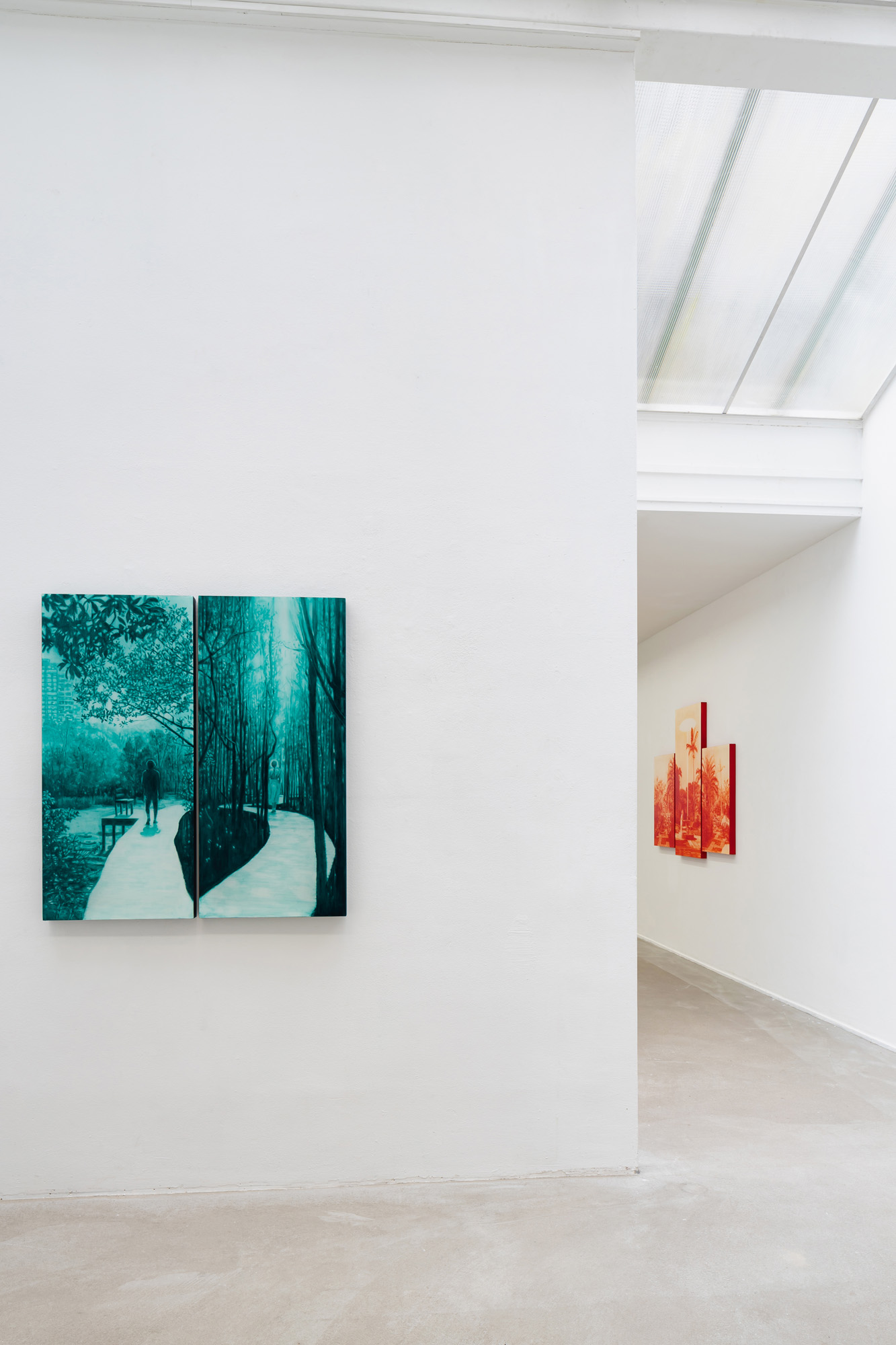

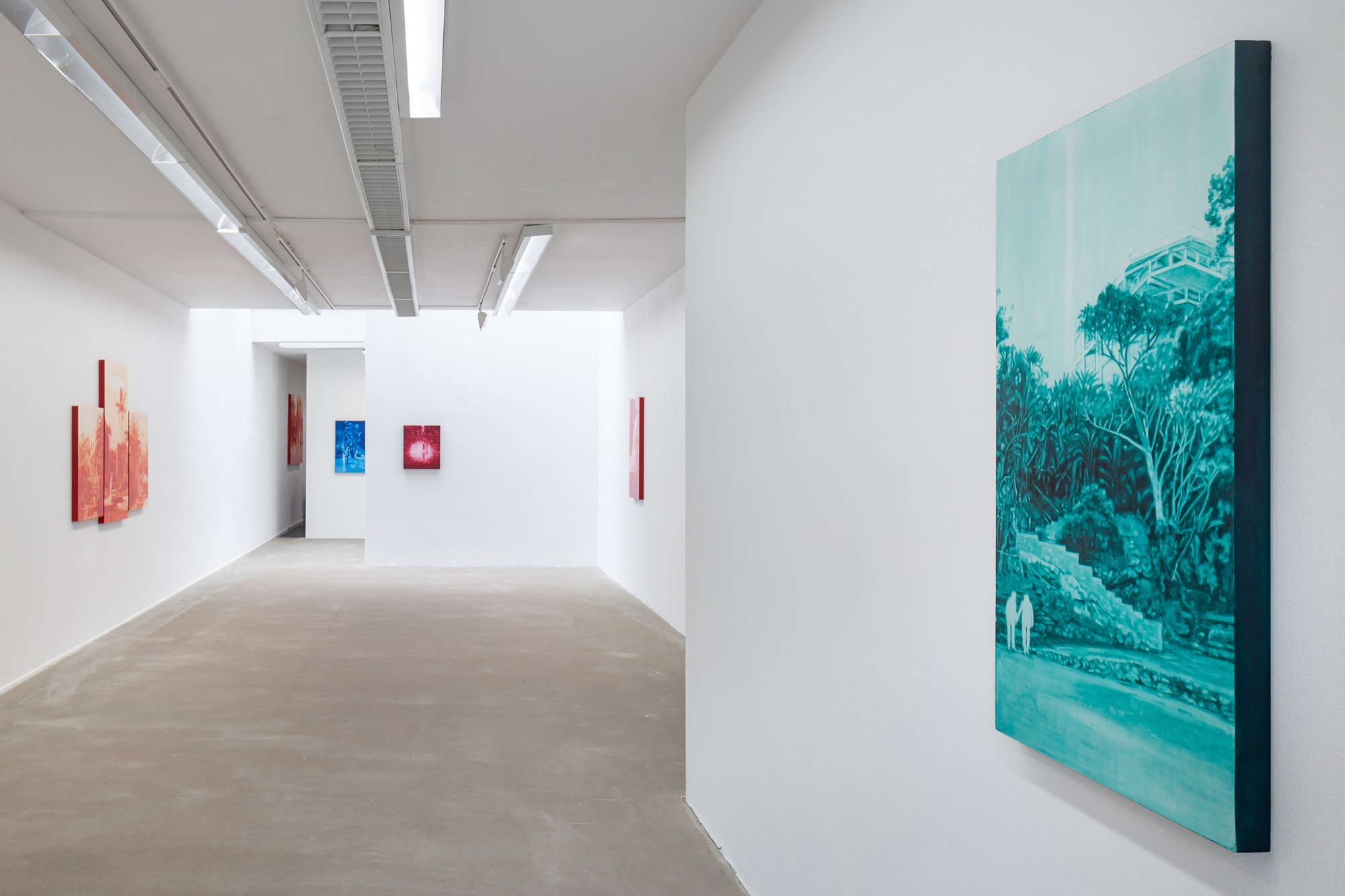
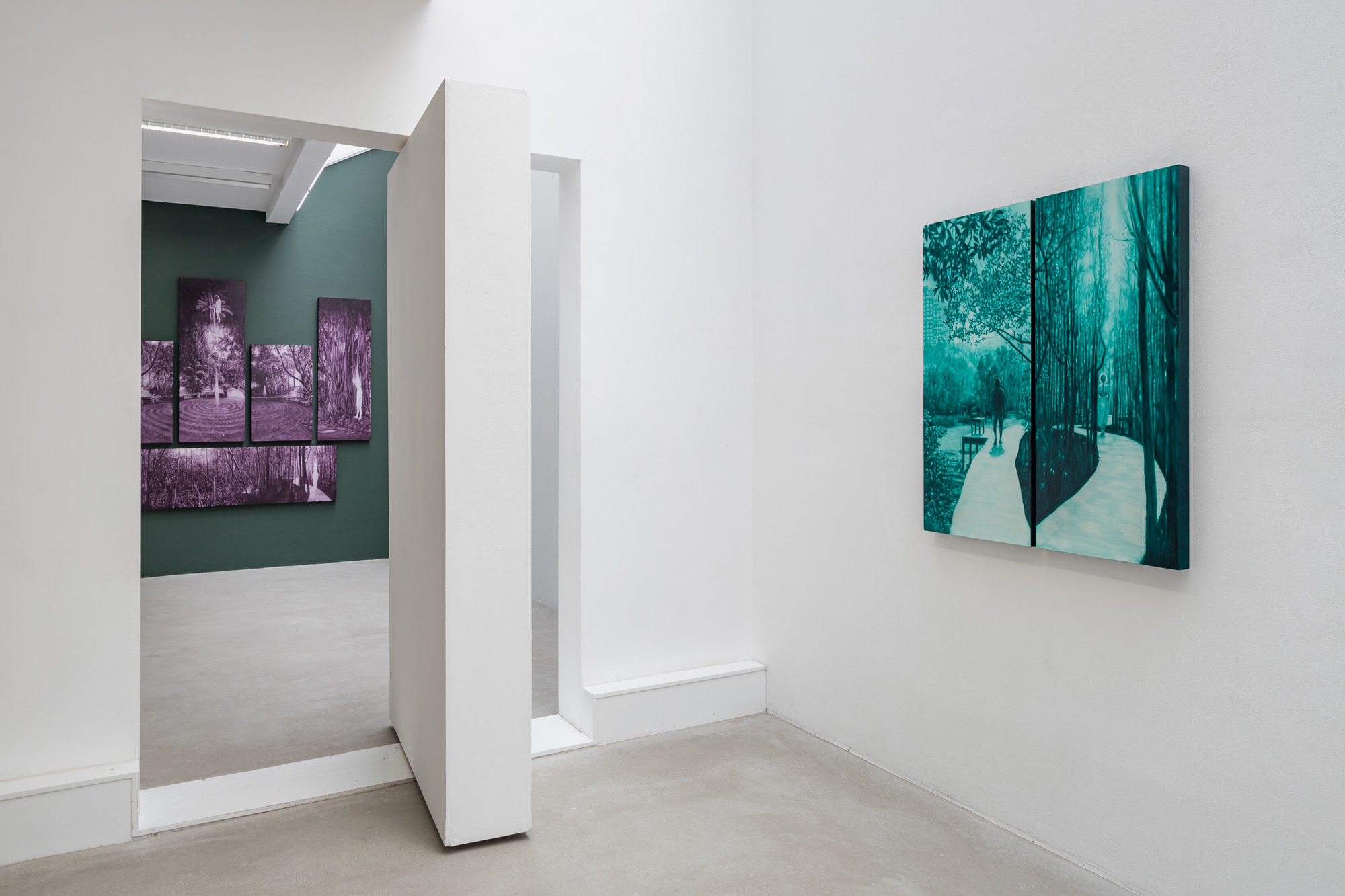
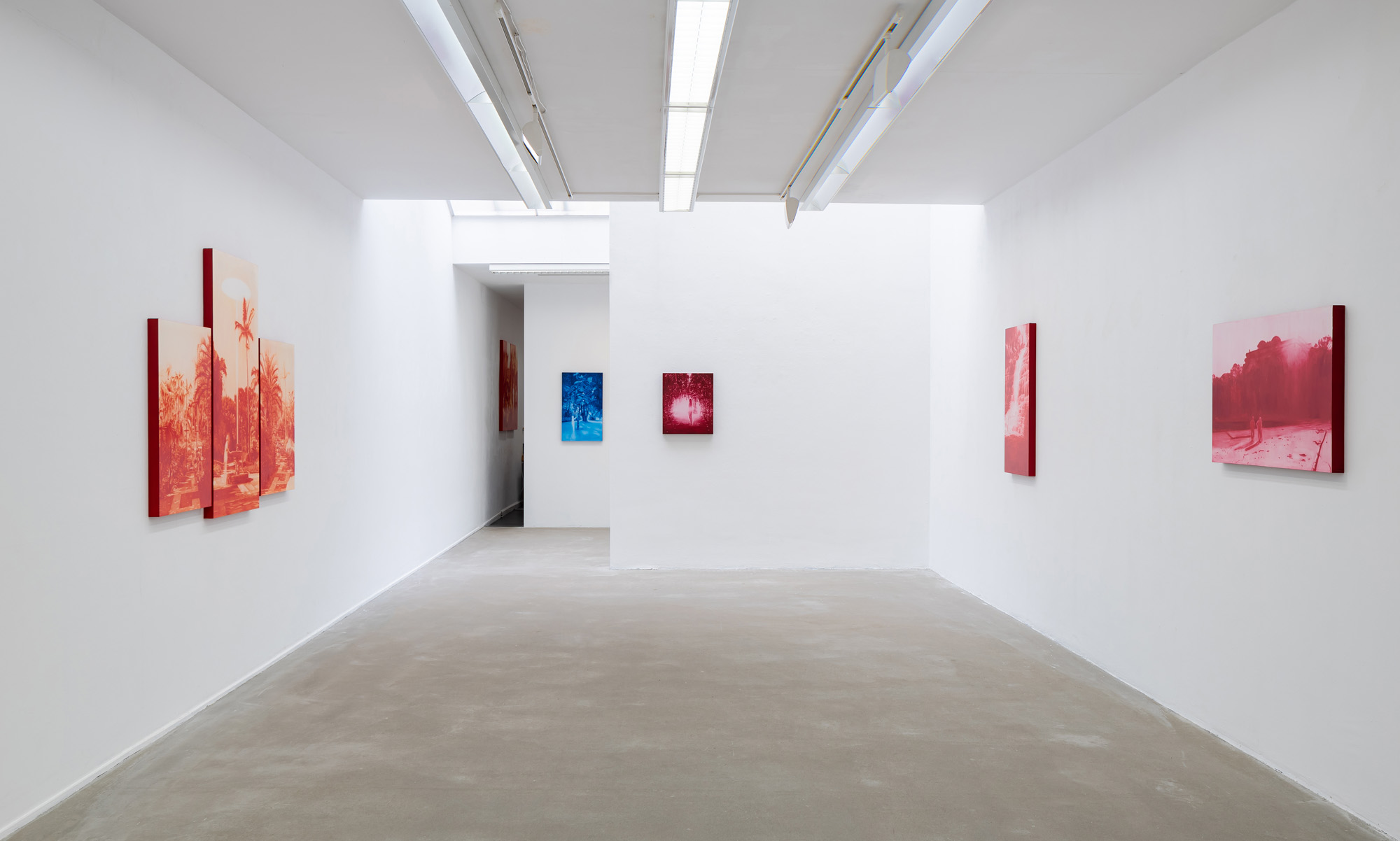


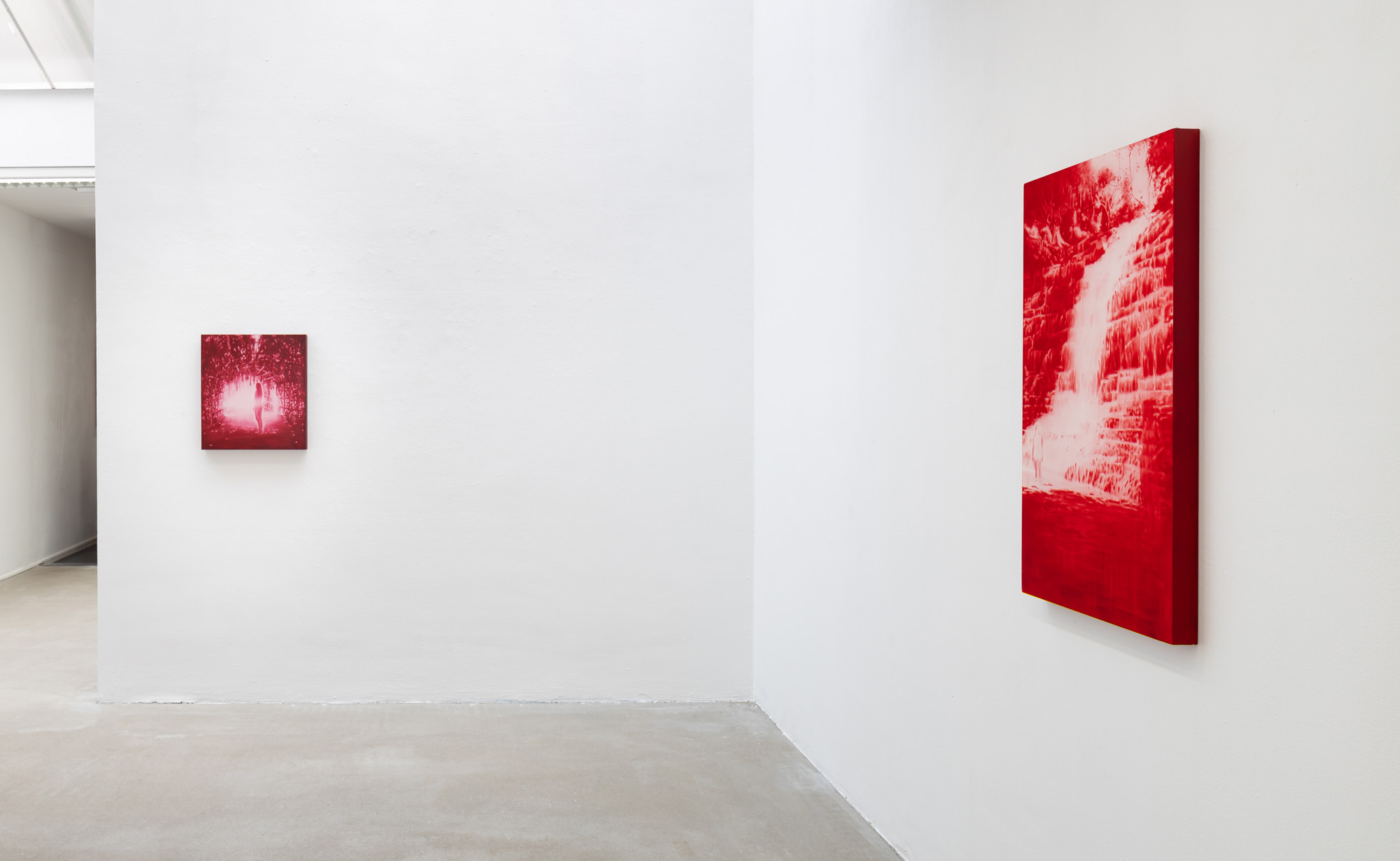



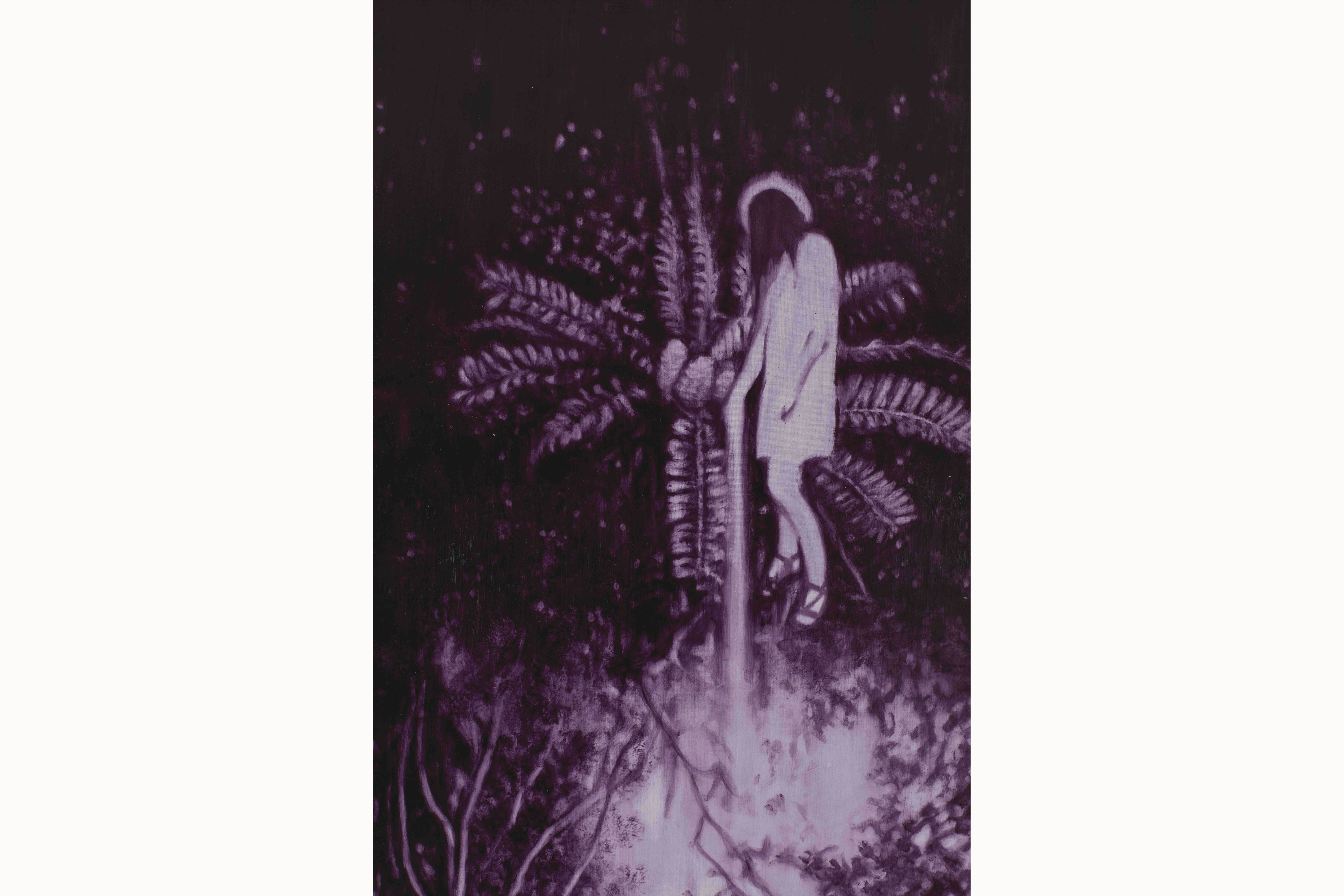

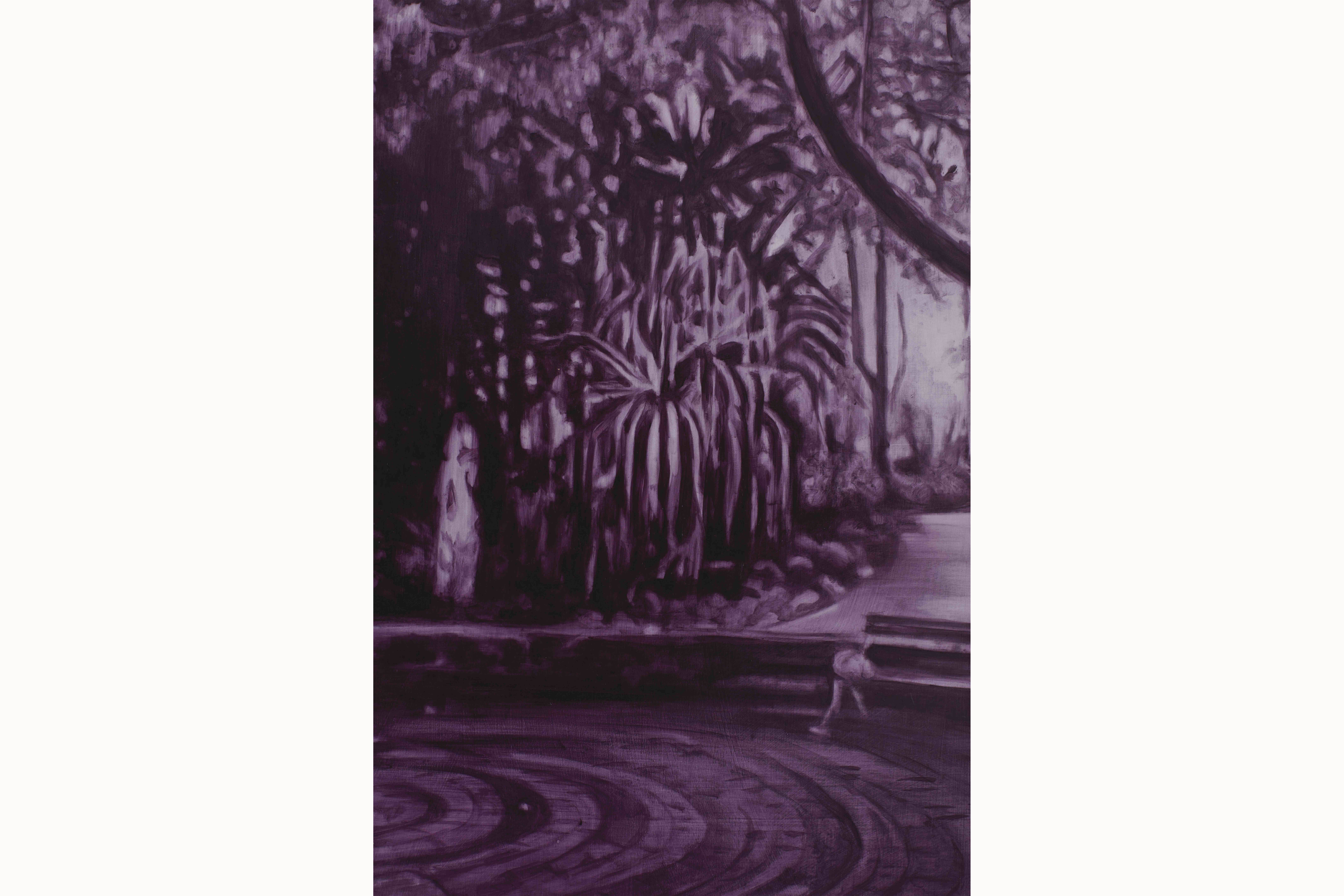

Concerning Plants, 2021. Oil on silk. 195 x 285cm
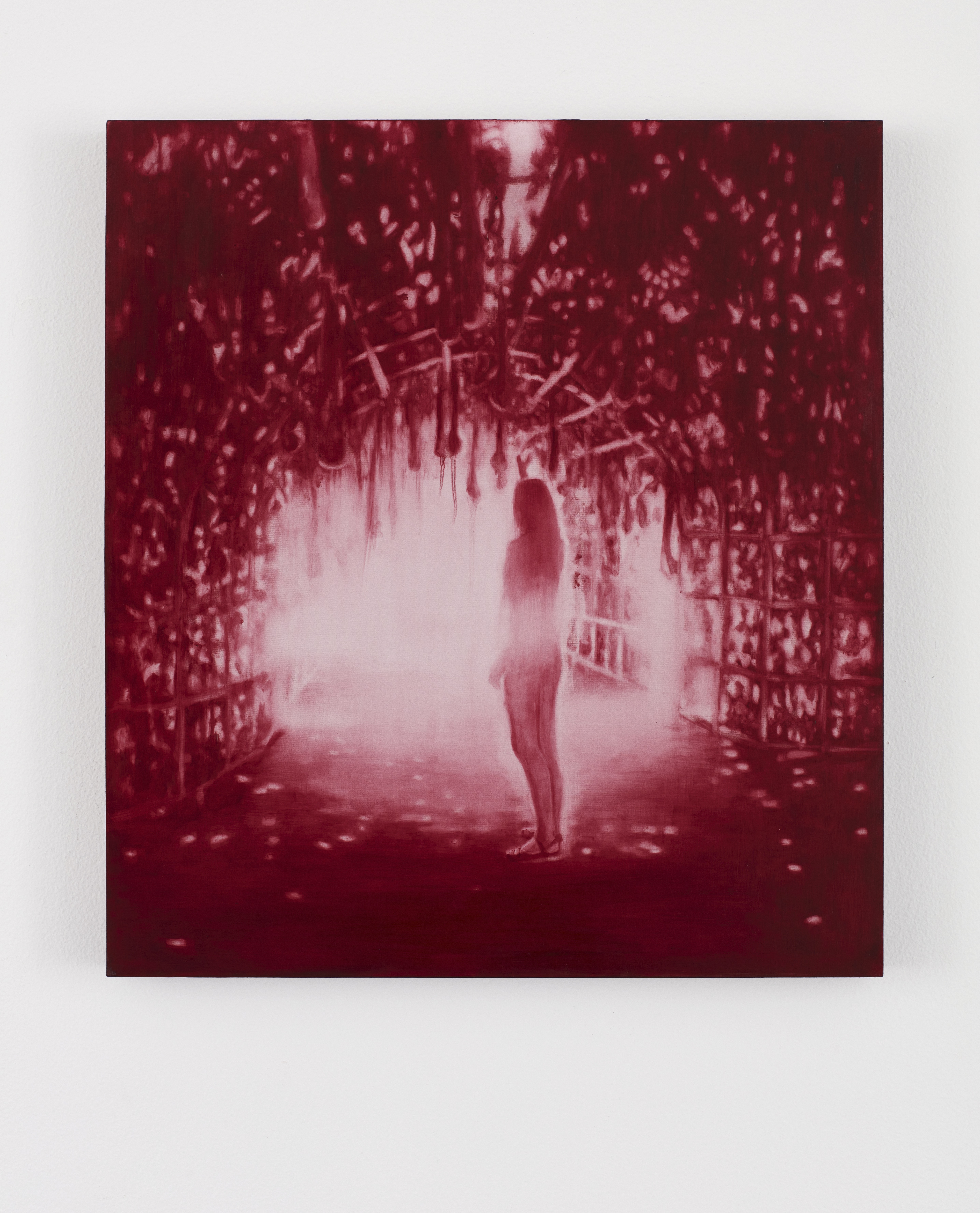
Reach, 2021. Oil on silk, 50 x 55cm
 Fruit, 2021. Oil on silk, 85 x 55 x 5cm
Fruit, 2021. Oil on silk, 85 x 55 x 5cm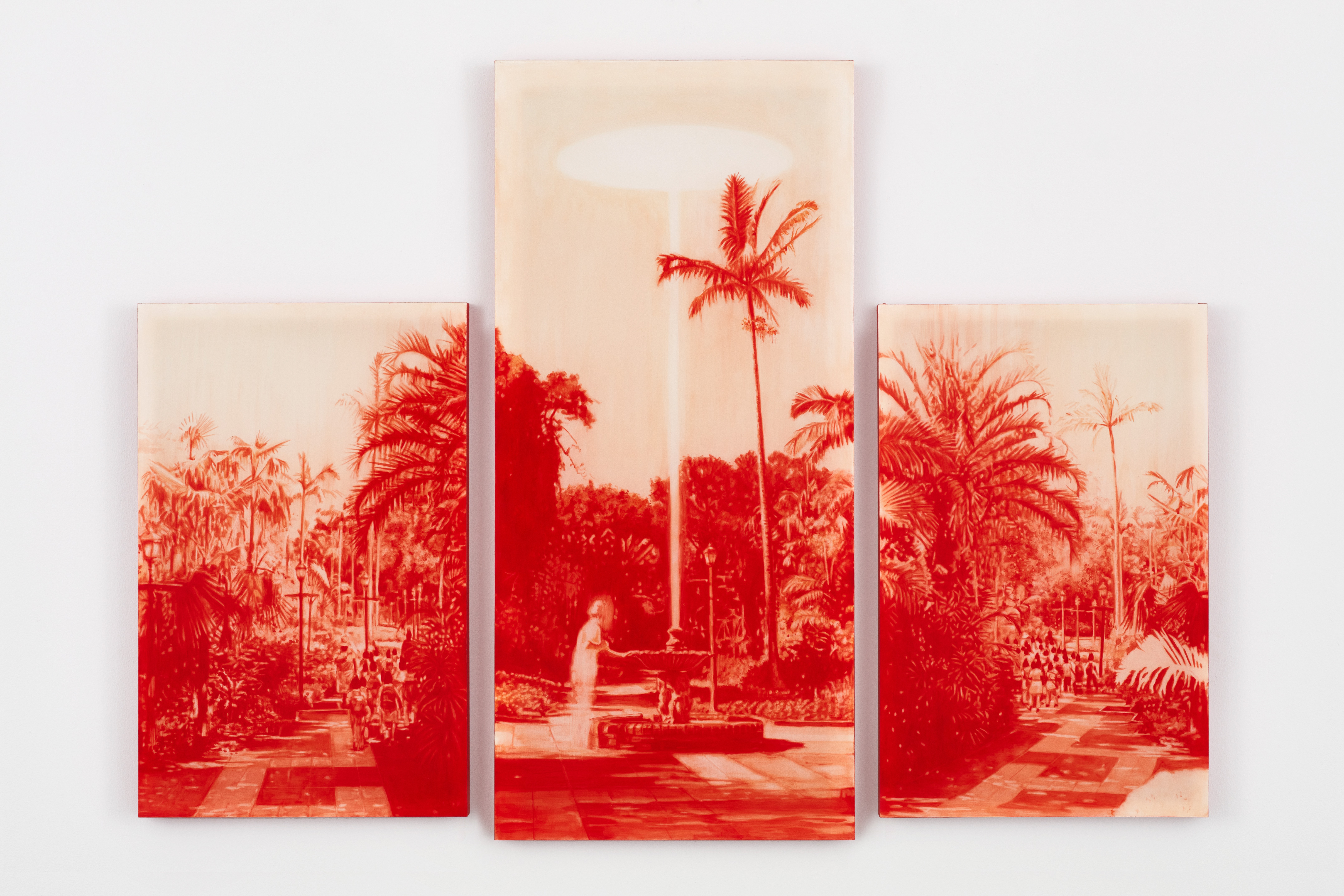

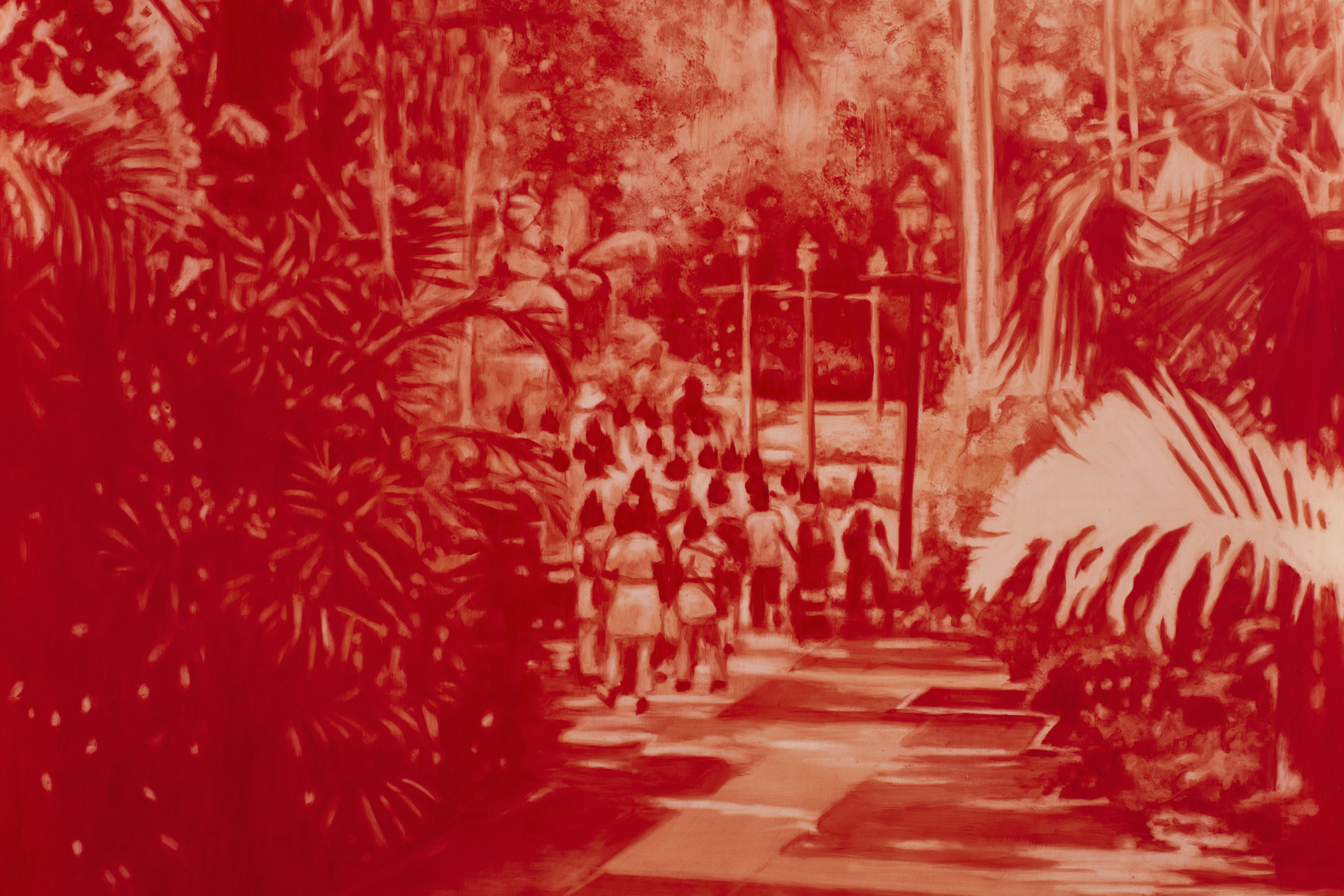

Fountain, 2021. Oil on silk, 175 x 130 cm
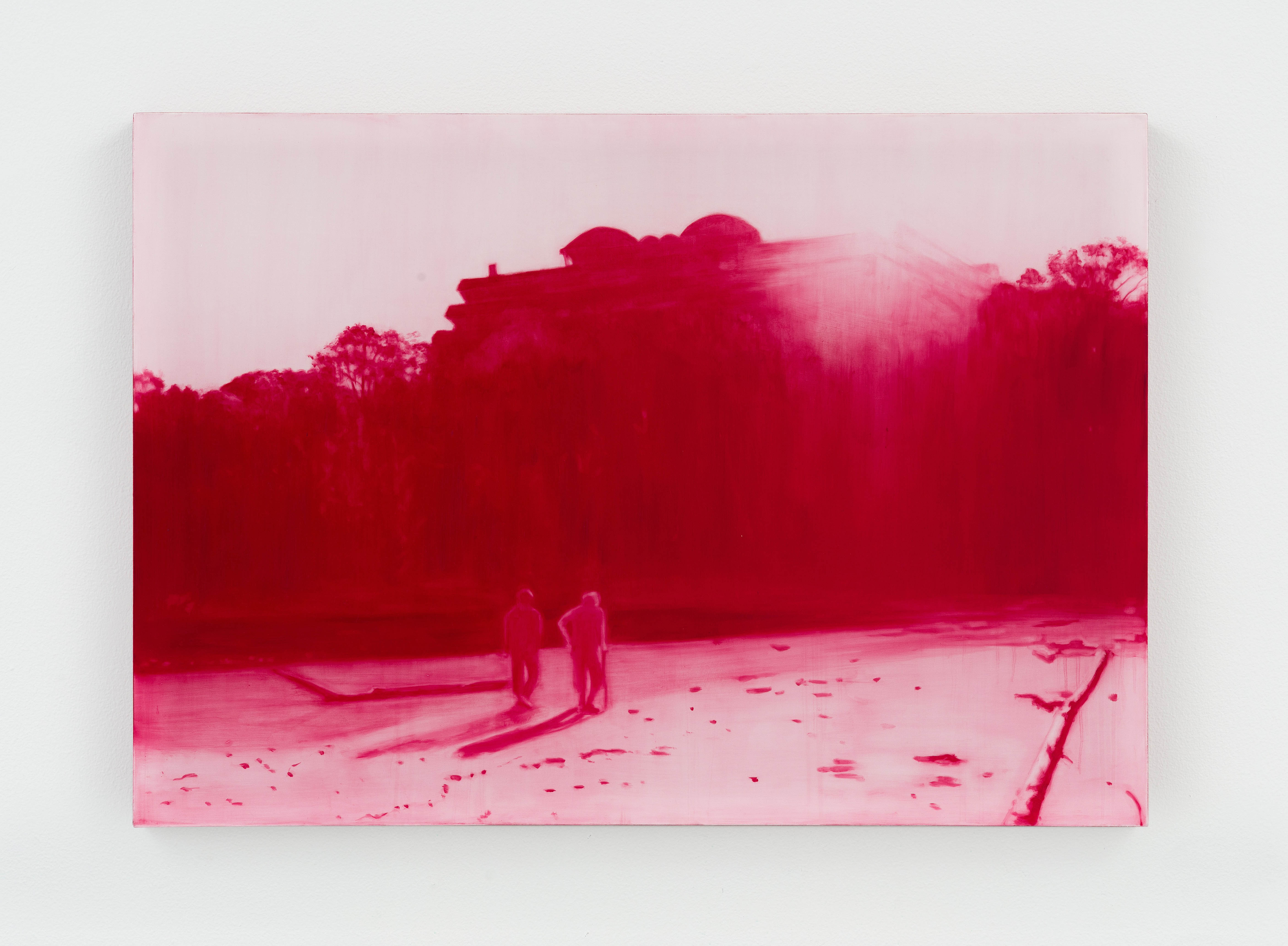 Strand, 2021. Oil on silk, 85 x 55cm
Strand, 2021. Oil on silk, 85 x 55cm
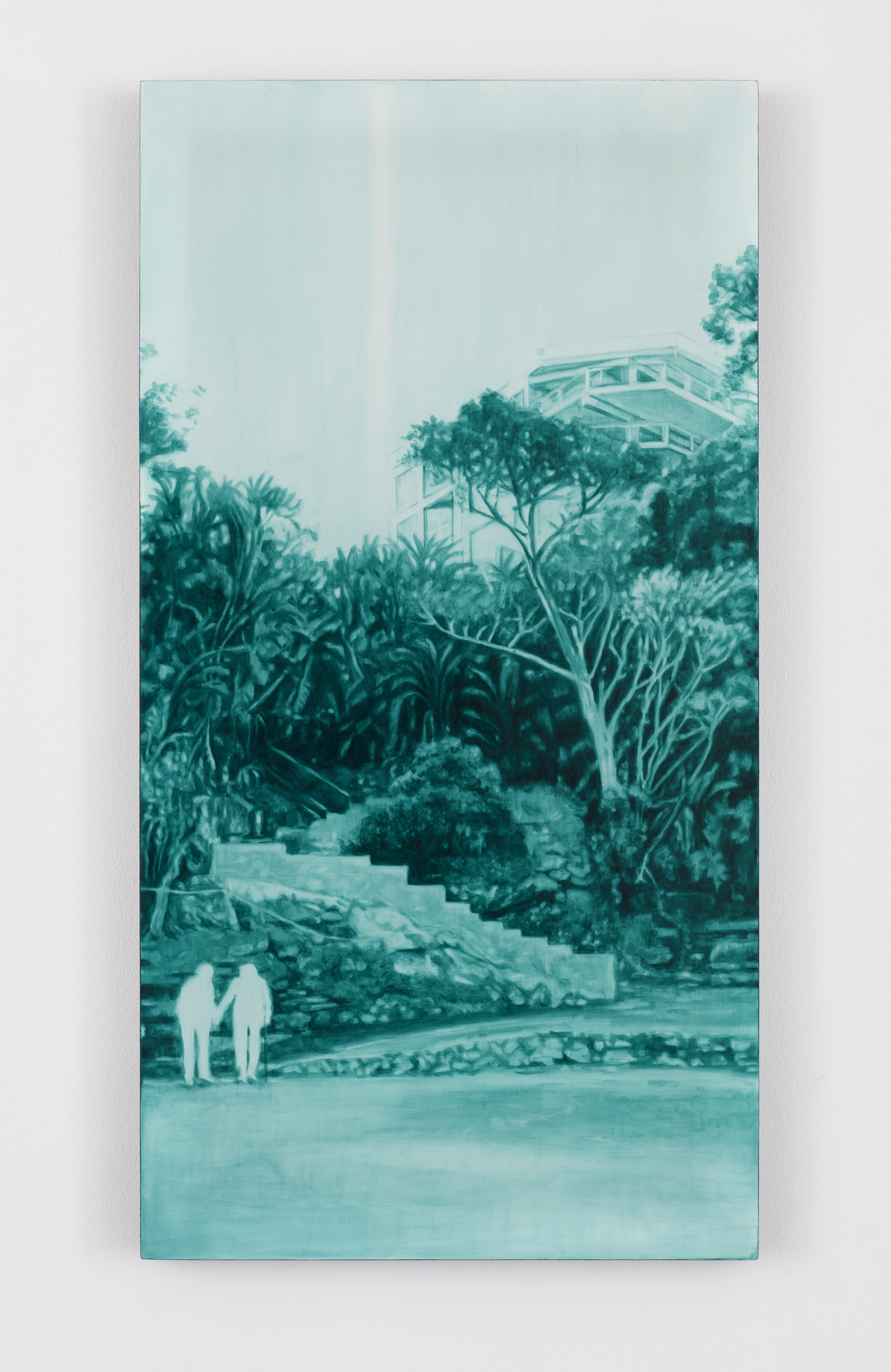 Stairs, 2021. Oil on silk, 105 x 55 x 5cm
Stairs, 2021. Oil on silk, 105 x 55 x 5cm

Mangroves, 2021. Oil on silk, 110 x 100 cm
![Waterfall, 2021. Oil on silk, 100 x 55cm]() Waterfall, 2021. Oil on silk, 100 x 55 x 5cm
Waterfall, 2021. Oil on silk, 100 x 55 x 5cm
 Waterfall, 2021. Oil on silk, 100 x 55 x 5cm
Waterfall, 2021. Oil on silk, 100 x 55 x 5cmInstallation Images by Peter Tjhuis
Artwork Photography by Hayden Phipps